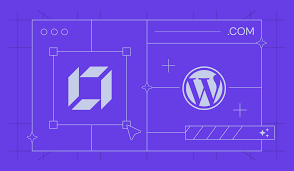what is a website In today’s digital age, understanding what a website is isn’t just for techies anymore. Whether you’re running a small business, freelancing, or simply looking to build your online presence, knowing how websites work and what they’re made of can be incredibly valuable. But what is a website, really? Let’s break it down simply what is a website.
what is a website This guide will walk you through the definition, types, structure, purpose, and benefits of websites — all in plain English what is a website.
1. What is a Website?
what is a website A website is a collection of publicly accessible web pages that are grouped together under a single domain name (like google.com or yourbusiness.in). These pages are stored on a web server and can contain anything — text, images, videos, forms, buttons, animations, or even complete web apps what is a website.
what is a website You’re reading one right now. That’s the magic of the web!
Example:
- Google.com – a search engine website
- Wikipedia.org – an informational site what is a website
- Amazon.in – an eCommerce website

2. How Does a Website Work?
At its core, a website works on a simple client-server model:
- You (the user) enter a website address (like
www.wikipedia.org) into a browser. - The browser sends a request to the web server that hosts the site.
- The server responds with the website’s files.
- Your browser displays the web page.
This process happens in milliseconds, thanks to technologies like HTML, CSS, JavaScript, web hosting, and DNS.
3. Key Components of a Website
Let’s simplify the essential building blocks:
1. Domain Name
Your website’s address (e.g., www.mywebsite.com)
2. Hosting Server
A space on the internet that stores your website files
3. Frontend
The visible part users interact with — created using HTML, CSS, JavaScript
4. Backend (optional)
The behind-the-scenes engine that handles data, logins, and interactions — built with languages like PHP, Python, or Node.js
4. Types of Websites
Websites come in many forms based on their purpose. Here are some major types:
1. Personal Websites
Blogs, portfolios, or resumes — usually owned by individuals
2. Business Websites
Corporate sites that describe services, products, pricing, and more
3. eCommerce Websites
Online stores like Amazon or Flipkart
4. Educational Websites
Courses, tutorials, school portals (e.g., Khan Academy)
5. News & Media Websites
News portals like BBC or Times of India
6. Social Networking Sites
Facebook, Twitter, Instagram — for connecting people
5. Static vs. Dynamic Websites
Static Websites
- Simple HTML/CSS pages
- Content doesn’t change unless manually updated
- Best for portfolios or basic info sites
Dynamic Websites
- Interactive, database-driven
- Examples: Blogs, eCommerce sites
- Built using CMS like WordPress or custom code

6. What is a Web Page?
A web page is a single document on the web. Think of a website like a book, and each web page as a page in that book.
Example:
example.com/about– About Us pageexample.com/contact– Contact page
7. What is a Homepage?
The homepage is the main entry point of a website. It’s the first thing users usually see. It sets the tone and guides visitors to explore deeper.
8. Popular Website Building Platforms
Don’t know how to code? No problem! These tools help anyone create a site easily:
- WordPress.org – Great for blogs and business sites
- Wix – Drag-and-drop builder for beginners
- Shopify – Best for eCommerce
- Squarespace – Creative designs for portfolio sites
9. What is a CMS (Content Management System)?
A CMS is software that helps you manage website content without needing coding skills.
Examples:
- WordPress
- Joomla
- Drupal
It allows you to add pages, blog posts, images, and update content with ease.
10. Why is a Website Important?
In 2025, having a website is not optional — it’s essential.
Here’s why:
- Credibility – People trust businesses with a website
- 24/7 Availability – Works even when you’re sleeping
- Marketing Tool – Attract visitors through SEO and ads
- Global Reach – Go beyond your local market
- Control – Own your brand, unlike relying only on social media
11. How to Get a Website of Your Own
Here’s a simplified process:
- Choose a Domain Name
- Use GoDaddy, Namecheap, etc.
- Buy Hosting
- Use Hostinger, Bluehost, or SiteGround
- Install a CMS (like WordPress)
- Choose a Theme/Design
- Add Content
- Launch Your Site

12. What Makes a Good Website?
Here are key features of a great website:
- Fast loading speed
- Mobile responsiveness
- Clear navigation
- SEO-friendly structure
- Great content
- Contact forms or CTAs
- Trust indicators (like testimonials or SSL)
13. Common Website Mistakes to Avoid
- Slow loading time
- Poor mobile design
- No clear call to action
- No contact information
- Not optimized for SEO
- Using free platforms without customization
14. Trends in Website Design for 2025
Here’s what’s hot in 2025:
- Dark mode options
- AI chatbots
- Voice search optimization
- Minimalist design
- 3D elements and interactive visuals
15. Cost of Building a Website
Here’s an average breakdown:
| Website Type | Cost in INR (Approx.) |
|---|---|
| Personal Blog | ₹3,000 – ₹10,000 |
| Business Website | ₹15,000 – ₹50,000 |
| eCommerce Website | ₹30,000 – ₹1,00,000+ |
| Custom Design/Dev | ₹1,00,000+ |
16. Website vs. Web App: What’s the Difference?
- Website: Informational, less interaction (e.g., blog)
- Web App: Highly interactive, dynamic (e.g., Gmail)
17. Future of Websites
Websites are evolving rapidly. Expect:
- More personalization
- Integration with AI
- Enhanced accessibility
- Faster performance with better technologies (like JAMstack)
18. Website Accessibility: Why It Matters
Accessibility ensures everyone — including people with disabilities — can use your site. It’s both a legal and moral responsibility.
Use alt text, keyboard navigation, screen reader support, and contrast ratios.

19. SEO and Websites
Search Engine Optimization (SEO) helps your website rank in Google.
Basic SEO tips:
- Use your focus keyword naturally
- Write meta titles and descriptions
- Optimize images what is a website
- Use headers (H1, H2, H3)
- Link to relevant content
20. Final Thoughts
what is a website A website is your digital home. Whether you’re a student, freelancer, or business owner — having a website in 2025 gives you visibility, credibility, and control over your online identity.
You don’t need to be a tech expert to start. Just take the first step, and tools like WordPress, Wix, or Shopify will guide the rest what is a website.
FAQs About Websites
Q1: Can I create a website for free?
Yes, platforms like WordPress.com, Wix, and Blogger allow free sites with limited features.
Q2: Do I need coding skills to build a website?
Not at all. Drag-and-drop builders and CMSs like WordPress make it easy.
Q3: How long does it take to build a website?
Anywhere from a few hours (basic blog) to several weeks (custom web app).
Q4: Is a domain name necessary?
Yes, it’s your web address. It’s like buying land before building a house online.
